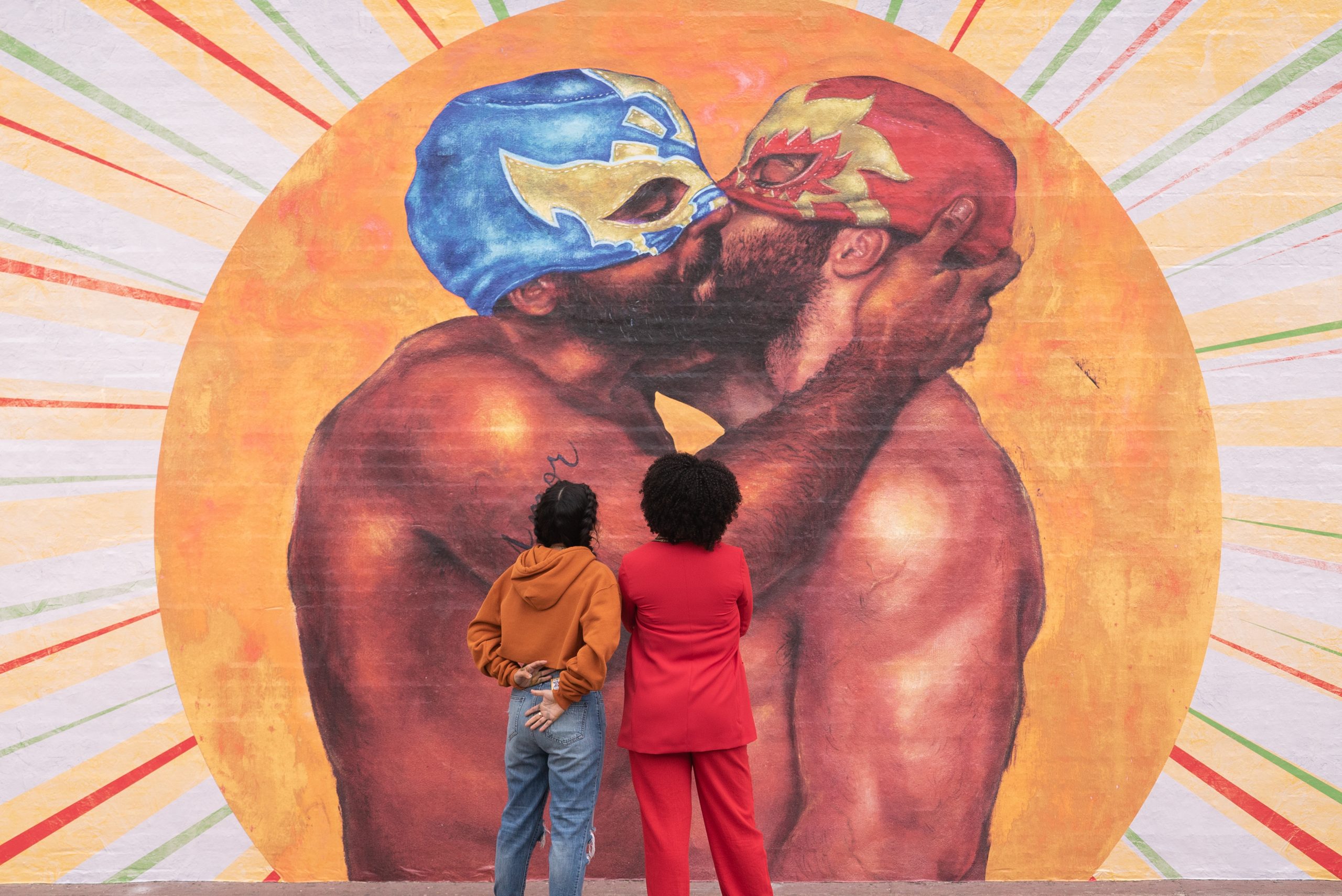My favorite episode of Gentefied is “Bad Hombres” where Chris Morales, played by Carlos Santos, takes on a series of challenges presented to him by his coworkers in order to prove his Mexican-ness. Upon hearing Chris respond that he’d missed a big soccer game on TV the night before, one of his coworkers asks, “Que clase de Mexicano eres?”
That triggering question may be a familiar one to many Mexican-Americans who may not have the same interests or carried on the same cultural traditions as their predecessors. We know there are some Latinxs who don’t speak Spanish, some whose family didn’t grow up visiting their country of origin, or some who, much like Chris, need to work on their grito.

But in all seriousness, what does it mean to truly be part of a culture?
It means honoring and defending the people no matter where we fall on the Latinx spectrum.
Although Chris fails the “Mexican test,” he ultimately gains the respect of his coworkers when he stands up for them in the face of blatant racism and disrespect. Whether confronting outsiders or even our own family members at times, uncomfortable conversations are necessary to effect change.
Internalized racism is very prevalent in our community. I find it particularly infuriating when Mexican Americans use the word ‘Mexican’ as a slur or to underscore someone’s undesirable behavior. How can you indulge in the music or food from our culture while simultaneously insulting the people? The two sides of our identity are not mutually exclusive and making these types of remarks doesn’t make you superior to the people being insulted. It implicates you in self-hatred. Most of us only have to look one or two generations back to see that we are not so far removed from those being othered. If you equate Mexican with being bad, then what do you equate with being good? What is there to gain by saying these things? What systems are being upheld? While I understand that environment and upbringing has an influence over how we see ourselves, these types of comments do not serve us. Belittling our own people isn’t going to create any positive change. Words matter, and their ripple effects can span across generations. If mestizos hate on ourselves, we really have issues with the darker-skinned/less-Europeanized members of our community. Consider what Black/Indigenous/Asian Mexican people must contend with.
But in all seriousness, what does it mean to truly be part of a culture?
It means honoring and defending the people no matter where we fall on the Latinx spectrum.
In Gentefied, Chris recognizes that his experiences and understanding of the culture is not the same as that of his coworkers – he is a second-generation Mexican-American who spent a large portion of his life in Idaho where the Latinx population is significantly smaller than California’s. But he is still very much a part of the community. He realizes that the insults towards his coworkers are also insults towards him and his family, and while I don’t recommend punching someone out the way Chris did, we do need to fight for the dignity and respect of our people.
As season two of Gentefied quickly approaches (November 10!) I look forward to seeing what challenges the Morales family will take on, what they’ll accomplish, and the lessons they will surely impart with their eager fans. Here’s hoping we can move past using ‘Mexican’ as slur both on screen and off.

